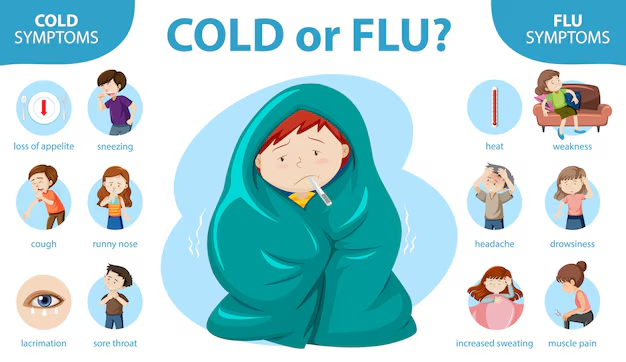13 February 2025
The United States is grappling with one of its worst influenza seasons in recent years, with millions of influenza cases reported across the country. Hospitals are seeing a surge in admissions, and healthcare professionals are urging the public to take necessary precautions to prevent further spread.
Escalating Influenza Cases Nationwide
According to the Centers for Disease Control and Prevention (CDC), more than 24 million Americans have been affected by the flu so far this season leading to a rise in influenza cases. The virus has led to nearly 49,000 hospitalizations, with emergency room visits categorized as “very high” in multiple states. As the flu continues to spread at an alarming rate, public health experts are emphasizing the importance of vaccination and preventive measures.
An increase in influenza cases has led to several factors, including low vaccination rates, the rapid spread of the virus in densely populated areas, and an increase in indoor gatherings due to colder weather. Many states are now struggling to manage the overwhelming number of flu-related hospital visits, with some hospitals operating at full capacity.
Statewide Impact and Hospital Overload

California: A Public Health Emergency
California has been one of the hardest-hit states, with hospitals facing a surge of flu patients. In the Bay Area, doctors report that more than 70% of respiratory illness tests are returning positive for influenza. The state’s flu positivity rate currently stands at 27.8%, which is significantly higher than the national average.
Dr. Peter Chin-Hong, an infectious disease specialist at the University of California, San Francisco (UCSF), has warned that this flu season is proving to be more aggressive than in previous years. He stressed the importance of flu shots and other preventive measures such as hand washing, mask-wearing, and avoiding large gatherings to curb transmission.
New York: Record-Breaking Flu Season
New York is also experiencing one of its worst flu seasons in more than a decade. The state has reported 3,138 hospitalizations as of early February, with emergency rooms struggling to accommodate the rising number of patients. The situation is exacerbated by low flu vaccination rates, which currently stand at just over 25%.
New York hospitals are reporting extended wait times in emergency rooms, with many patients requiring intensive care due to flu-related complications. State health officials are urging residents, especially children, the elderly, and those with pre-existing conditions, to get vaccinated immediately.
North Carolina: Alarming Death Toll
In North Carolina, the flu has already claimed 58 lives, including two children. The state’s health department has raised concerns over the increasing number of flu-related deaths and is encouraging residents to seek medical attention at the first sign of severe symptoms.
Avian Influenza Concerns and Rising Egg Prices
While the focus remains on human influenza cases, the spread of avian influenza (H5N1) is also causing concern. In Texas, multiple influenza cases of H5N1 have been confirmed in vultures at Landa Park in New Braunfels. Health officials have advised residents to avoid contact with sick or dead birds and to report any unusual wildlife behavior.
The avian flu outbreak has had a significant economic impact, particularly in the Midwest, where poultry farms have been hit hard. As a result, egg prices have soared, increasing by 15.2% in January alone. The year-on-year price increase now stands at a staggering 53%, making it one of the most expensive food items on the market.
Preventive Measures and Public Awareness
Health officials across the country are reiterating the importance of taking preventive steps to reduce flu transmission. The most effective way to protect against the virus remains vaccination, which can significantly reduce the risk of severe illness and hospitalization.
In addition to getting vaccinated, experts recommend the following measures:
Hand Hygiene: Regularly washing hands with soap and water can help prevent the spread of the virus.
Mask-Wearing: Wearing masks in crowded indoor spaces can reduce exposure to airborne flu particles.
Avoiding Close Contact: People experiencing flu-like symptoms should stay home to prevent infecting others.
Boosting Immunity: Eating a healthy diet, staying hydrated, and getting enough rest can help strengthen the immune system.
Looking Ahead: How Long Will the Flu Season Last?
Experts predict that flu activity will remain high in the coming weeks, with influenza cases potentially peaking by late February or early March. However, the duration and severity of the season will largely depend on how well the public adheres to preventive measures and vaccination efforts.
With hospitals under immense strain and flu-related deaths rising, the urgency to act cannot be overstated. Health professionals continue to stress the importance of proactive measures to safeguard individuals and communities from the worst impacts of this year’s influenza cases outbreak.



